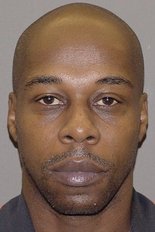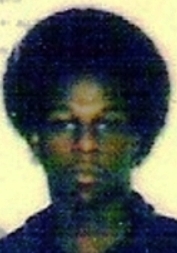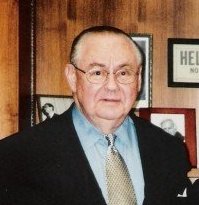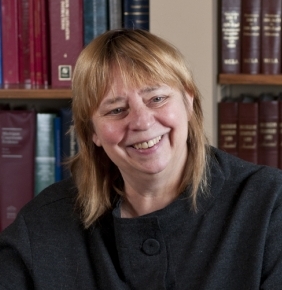Future of juveniles sentenced to die in prison at stake
A federal judge said Thursday he expected to rule in two to three weeks on the American Civil Liberties Union’s challenge to a Michigan law that bars parole for juveniles convicted of certain murders.
Judge John Corbett O’Meara heard arguments from lawyers for the ACLU and the state, which is defending the law, at an hour-long hearing in Ann Arbor on Thursday afternoon.
Eight men and one woman sentenced to life in prison for crimes committed when they were minors are being represented by the ACLU, whose lawyer, Deborah LaBelle, told O’Meara the law violates the constitutional ban on cruel and unusual punishment. One of the inmates is Henry Hill Jr., who was sentenced in the 1980 slaying of a man in Saginaw. Hill was 16 at the time.
Assistant attorney general Margaret Nelson argued the plaintiffs waited too long to bring a challenge or should have raised the issues during earlier appeals.
LaBelle said the ACLU simply wants the Michigan Parole Board to be given the opportunity to consider release for minors who were sent away for life.
“(Even) if we’re completely successful, every single one of them (still) could spend their lives in prison,” she said.
LaBelle told O’Meara that the ACLU is looking for some kind of order that would allow the parole board to consider their cases.
“The matter is under advisement,” O’Meara said. “I will try to put something down as an opinion and order in two to three weeks.”
The lawsuit was filed in November against the governor, state corrections department and parole board chair as part of the ACLU’s Juvenile Life Without Parole Initiative.
The U.S. Supreme Court ruled in 2005 that sentencing juveniles to death is unconstitutional. The ACLU and other advocates have since fought for the re-examining of life sentences given to youth convicted of homicide and other major crimes.
A 2005 study by Human Rights Watch and Amnesty International showed Michigan had the second-highest rate of imposing life sentences without parole on juveniles.
LaBelle said 351 inmates in Michigan prisons are serving life sentences without parole for crimes committed in their youth.
Juries convicted Hill and two of his cousins of first-degree murder in the 1980 shooting death of 21-year-old Anthony Thomas in a city park. Each was sentenced to life without parole.
Testimony showed that one of Hill’s cousins pulled the trigger.
Hill is the oldest of the plaintiffs in the suit at age 47.
“He made a stupid decision to go with a group of kids to a park with a gun,” LaBelle told reporters after the hearing. “He got scared and ran out of the park before the homicide was committed by someone else.”
In addition to Hill, the ACLU is representing Damion Todd, 42; Jemal Tipton, 42, Bobby Hines, 37; Bosie Smith, 35; Jennifer Pruitt, 35; Kevin Boyd, 33; Mathew Bentley, 28; and Keith Maxey, 20.
Four of the nine inmates represented by the ACLU in its lawsuit did actually kill someone in their criminal cases.
Attorney Deborah LaBelle: “We Owe Juvenile Offenders a Second Chance”
LawyersandSettlements.com
By BrendaC February 9th, 2011
“There is no discretion. You take a 14 year old and they are automatically treated as an adult.”
Clearly injustice moves attorney Deborah LaBelle somewhere down deep. Since she graduated from Wayne State law school in 1979, she has waded into some dark waters, investing hundreds of pro bono hours, simply because she believes she’s doing the right thing. In 2008, after a 14 year battle, she and a group of other lawyers won a multi-million dollar verdict and landmark case on behalf of women who had been abused in Michigan prisons.
Labelle now has set her sight on getting a second chance for the thousands of juvenile offenders who languish in American prisons convicted of murder or felony murder committed prior to their 18th birthday. “It is just mandatory,” says LaBelle, whose gentle voice belies the tiger within. “There is no discretion. You take a 14 year old and they are automatically treated as an adult. It is pretty stunning.”
Stunning indeed it is. The United States is the only country in the world where juveniles charged and convicted of murder (even if they were not principally responsible for the murder) are automatically given life with no chance of parole. There are 307 ‘juvenile lifers’ now in Michigan prisons ranging in age from 14 to 65.
One man, now in his sixties, who LaBelle knows well, went to prison when he was 15 for murdering his abusive stepfather.
“He is not the boy he was,” says LaBelle. “He told me once he sometimes sees that boy in his mind’s eye and he just wants to shake him and say ‘why don’t you just leave, just go’.”
But that’s not what happened and he now has spent more than 50 years languishing in prison. “He was just filled with rage and anger and everything seemed hopeless,” says LaBelle. “Kids just don’t have experience or the ability to chart things out very well.”
“The heart of this issue is sentencing people who commit their crimes when they are 14, 15 or 16 years old to the harshest sentence you can give to anyone, which is life without parole,” says LaBelle. “We believe this is cruel and unusual punishment.“
LaBelle has filed a complaint for declaratory and injunctive relief in the state of Michigan on behalf of 9 class representatives. All are juvenile lifers currently being held with no chance of parole for the rest of their lives in Michigan prisons.
This is the first civil rights suit of its kind in the United States and aimed at what she describes as a simple goal. “We are just asking that the parole board just take a look at them. Have they matured, was this a youthful impetuous crime, did it involve peer pressure, or was it one of those stupid horrible things that youths sometimes do in a moment. Have they matured and should they come home at some point?” asks LaBelle.
A recent report authored by LaBelle and others was funded by the American Civil Liberties Union (ACLU) and other donors. And also, when LaBelle has received attorney fees for cases she was involved in, much of it goes right back into funding other lawsuits aimed at righting systemic wrongs.
What kind of a lawyer does so much for so little?
“Well, I just like the work,” says LaBelle.
Deborah LaBelle is a graduate of Wayne State Law School. She mentors undergraduate and graduate students and has supervised at least six interns a year for the past ten years. Her practice, the Law Offices of Deborah LaBelle is located in Ann Arbor, Michigan.









Thank you so so much for doing this, I have a dear friend that is on the list, please continue to help these people, God bless you, you are a saint. Thanks Shelly